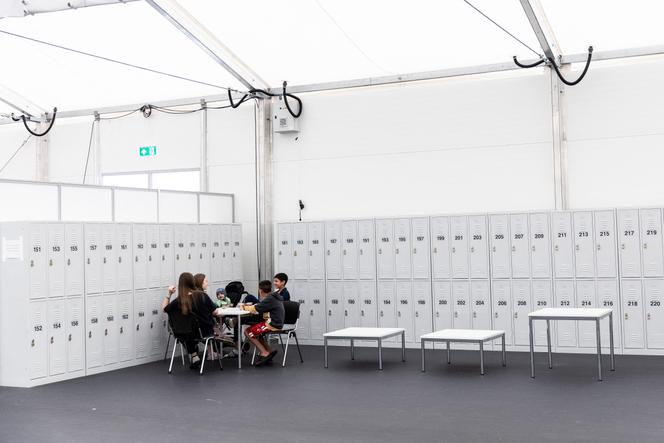


More than two and a half years after Russia's invasion of Ukraine in February 2022, some European countries are taking a harder line on accepting refugees who fled the war. On September 27, the Norwegian government announced that it would stop granting automatic asylum to all Ukrainians who request it, effective immediately. Currently, some 85,000 Ukrainians are living in this country of 5.6 million inhabitants.
Immediately after the Russian offensive, Europe mobilized to receive and assist Ukrainian refugees. Norwegia granted them automatic asylum as Europe undertook a similar move: The EU activated a directive for temporary protection which allowed refugees to settle in the country of their choice. They have access, depending on the rules of each government, to social services, housing, employment and banking services. They can come and go between the EU and Ukraine. At the end of July, 4.3 million Ukrainians were benefiting from this temporary protection, according to the European Commission.
In Norway, Ukrainians coming from the western regions of the country (those of Lviv, Volhynia, Transcarpathia, Ivano-Frankivsk, Ternopil and Rivne), will now have their applications examined on a case-by-case basis as these regions are now considered safe due to being far from the front line. "We can't take in a disproportionate share of displaced people compared to similar countries, such as the Nordic countries," said Norwegian Justice Minister Emilie Enger Mehl. The Norwegian government justified this tougher stance by citing the impact of the refugee influx on housing, health services and schools in certain cities. The minister also noted that a "growing proportion" of them were "men, many of fighting age." Ukraine struggles to replenish the ranks of its military.
In the EU, some countries are handling the situation less delicately. At the end of August, in Kocs, a small Hungarian town 80 kilometers from Budapest, around 100 Ukrainian refugees, the vast majority of them women and children, were suddenly evicted from the hostel where they had been housed since the start of the war. "They threw us out! Where can we go with our children?" said a mother from Transcarpathia.
Faced with the scandal, Viktor Orban's nationalist government finally organized an emergency accommodation solution. However, it defended the contested decree, issued at the end of June, which considerably tightened the conditions for welcoming Ukrainian refugees. The bill reserves the right to accommodation to people from regions directly affected by the war, but excludes the western Ukrainian oblasts where many of Hungary's refugees come from, often from the Magyar-speaking minority. The government argued that "the prolongation of the war justified the revision of the aid system" for some 30,000 Ukrainian refugees in Hungary. Among them, "4,000 people were living on Hungarian state money without working," said government spokesman Gergely Gulyas.
You have 71.48% of this article left to read. The rest is for subscribers only.
